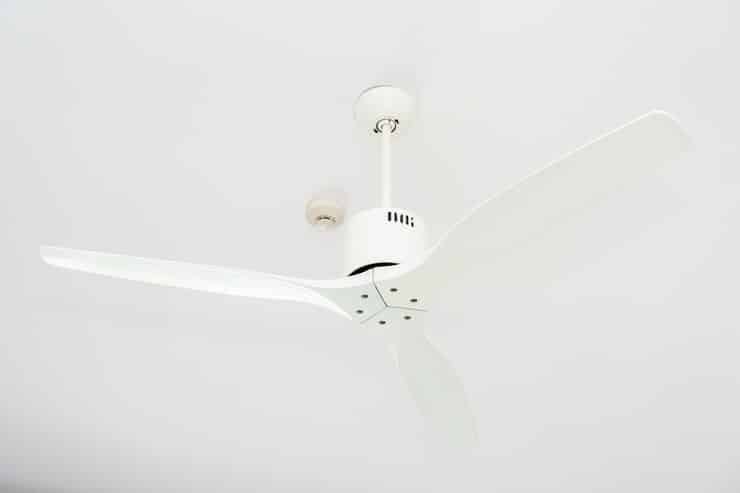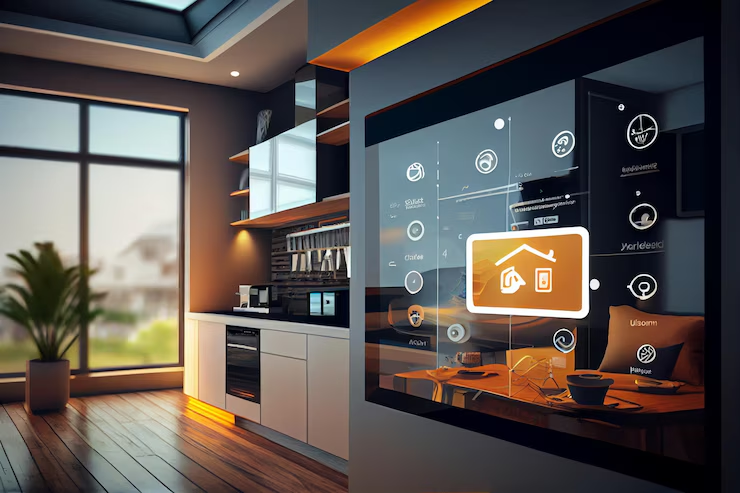Upgrade Your Home With These Must-Have Energy Efficient Appliances
In an era of increasing environmental consciousness, homeowners are becoming more aware of their energy consumption and its impact on the planet. Upgrading to energy-efficient appliances is a smart choice not just for the environment but also for your wallet. Energy-efficient appliances use advanced technology to consume less energy, which translates to lower utility bills and reduced carbon footprints. This article delves into the must-have energy-efficient appliances that can upgrade your home, along with their benefits, features to look for, and frequently asked questions.
Energy Efficient Appliances:
Energy-efficient appliances play a crucial role in reducing energy consumption, which helps in minimizing greenhouse gas emissions. By investing in these appliances, homeowners can significantly reduce their environmental impact. Furthermore, energy-efficient appliances often come with government rebates and tax incentives, making them more affordable in the long run. Here are some reasons why upgrading to energy-efficient appliances is essential:
- Cost Savings: Although energy-efficient appliances may have a higher upfront cost, they often save homeowners money in the long run through lower energy bills.
- Environmental Impact: Using less energy contributes to a decrease in carbon emissions, helping combat climate change.
- Government Incentives: Many governments offer rebates, tax credits, and other incentives for purchasing energy-efficient appliances, which can help offset initial costs.
- Increased Home Value: Energy-efficient appliances can enhance the resale value of your home, making it more appealing to potential buyers.
- Advanced Technology: Energy-efficient appliances often come equipped with the latest technology, improving performance and convenience.
Must-Have Energy-Efficient Appliances

1. Energy-Efficient Refrigerators
Refrigerators are one of the largest energy consumers in a household. Upgrading to an energy-efficient model can significantly reduce energy consumption.
- Features to Look For:
- Energy Star Certification: Look for refrigerators that have the Energy Star label, indicating they meet strict energy efficiency guidelines.
- Inverter Technology: This technology allows the compressor to adjust its speed, reducing energy usage.
- LED Lighting: LED lights consume less energy and produce less heat than traditional incandescent bulbs.
- Benefits:
- Reduced energy bills
- Better food preservation
- Quieter operation
2. High-Efficiency Washing Machines
Traditional washing machines use a significant amount of water and energy. High-efficiency models use advanced technology to clean clothes effectively while conserving both resources.
- Features to Look For:
- Front-Loading Design: These machines use less water and energy than top-loading models.
- Load Sensing Technology: This feature adjusts the water level based on the size of the load, further conserving water.
- Multiple Wash Cycles: Look for machines with various cycles that optimize energy and water use for different types of laundry.
- Benefits:
- Less water and energy consumption
- Improved cleaning performance
- Reduced wear on clothes
3. Energy-Efficient Dishwashers
Modern dishwashers are designed to use less water and energy than ever before. An energy-efficient model can save you time and resources.
- Features to Look For:
- Energy Star Certification: Like refrigerators, dishwashers with this certification meet energy efficiency standards.
- Soil Sensors: These sensors adjust the wash cycle based on the level of soil on dishes, optimizing water and energy use.
- Quiet Operation: Look for models with noise-reduction technology for a more peaceful kitchen environment.
- Benefits:
- Water and energy savings
- Less time spent washing dishes by hand
- Improved hygiene through high-temperature washes
4. Energy-Efficient Ovens and Ranges
Cooking appliances have also evolved, with energy-efficient models available that utilize advanced technologies to reduce energy consumption.
- Features to Look For:
- Induction Cooktops: These use electromagnetic energy to directly heat pots and pans, reducing heat loss and cooking time.
- Convection Ovens: These distribute heat evenly throughout the oven, allowing for faster cooking and reduced energy use.
- Self-Cleaning Options: Look for ovens with self-cleaning modes that use high heat to eliminate food residues without harsh chemicals.
- Benefits:
- Faster cooking times
- Energy savings compared to traditional gas or electric models
- Improved cooking performance
5. Smart Thermostats
While not an appliance in the traditional sense, smart thermostats are essential for optimizing home energy use and enhancing comfort.
- Features to Look For:
- Learning Capability: Some smart thermostats learn your habits and adjust temperatures automatically for maximum efficiency.
- Remote Access: Control your thermostat remotely via a smartphone app for convenience and energy savings.
- Integration with Home Automation Systems: Look for models that work seamlessly with other smart home devices.
- Benefits:
- Reduced heating and cooling costs
- Enhanced comfort through personalized temperature settings
- Environmental benefits from reduced energy consumption
6. Energy-Efficient Water Heaters
Water heating is one of the largest energy expenses in a home. Upgrading to an energy-efficient water heater can lead to significant savings.
- Features to Look For:
- Tankless Models: These provide hot water on demand, reducing energy loss associated with traditional storage tanks.
- Heat Pump Water Heaters: These use electricity to move heat from the air or ground to heat water, consuming significantly less energy than conventional electric water heaters.
- Energy Star Certification: As with other appliances, look for models that have earned this designation.
- Benefits:
- Lower energy bills
- Instant hot water with tankless models
- Reduced carbon footprint
7. Energy-Efficient Ceiling Fans

Ceiling fans can improve comfort and reduce reliance on air conditioning during warmer months, making them a smart addition to your home.
- Features to Look For:
- DC Motors: These consume less energy than traditional AC motors while providing the same airflow.
- Energy Star Certification: Look for fans that meet energy efficiency guidelines for maximum performance.
- Reversible Motor: A reversible motor allows you to switch the direction of airflow, enhancing comfort in both summer and winter.
- Benefits:
- Improved airflow and comfort
- Reduced reliance on air conditioning
- Energy savings
8. Energy-Efficient HVAC Systems
Heating, ventilation, and air conditioning (HVAC) systems are critical for maintaining comfort in your home. Upgrading to an energy-efficient model can significantly impact your energy bills.
- Features to Look For:
- Variable-Speed Motors: These adjust airflow based on the temperature in your home, improving efficiency.
- Zoning Systems: Zoning allows you to heat or cool specific areas of your home, reducing energy waste.
- Energy Star Certification: Look for HVAC systems that meet or exceed energy efficiency standards.
- Benefits:
- Lower energy consumption and costs
- Enhanced comfort throughout your home
- Reduced environmental impact
9. Energy-Efficient Lighting
Lighting is a simple yet impactful area for energy efficiency improvements. Switching to energy-efficient lighting can make a significant difference in your energy consumption.
- Features to Look For:
- LED Bulbs: LED bulbs use significantly less energy than incandescent bulbs and have a longer lifespan.
- Smart Lighting Systems: These allow you to control your lighting remotely and set schedules to maximize efficiency.
- Dimmers and Timers: Dimmers can help reduce energy use, and timers can ensure lights are only on when needed.
- Benefits:
- Lower energy bills
- Long-lasting bulbs reduce replacement frequency
- Improved ambiance with smart lighting options
10. Energy-Efficient Pool Equipment

For homeowners with pools, upgrading to energy-efficient pool equipment can lead to substantial energy savings.
- Features to Look For:
- Variable-Speed Pool Pumps: These use significantly less energy than traditional single-speed pumps by adjusting the speed based on the cleaning needs of the pool.
- Solar Pool Heaters: These utilize solar energy to heat your pool, reducing reliance on electricity or gas.
- Energy-Efficient Pool Filters: Look for filters that are designed for optimal performance with minimal energy consumption.
- Benefits:
- Reduced energy costs for pool maintenance
- Eco-friendly heating options
- Improved pool cleanliness with efficient filtration
Also Read : Organic Fruit Gardening: Growing Healthy, Pesticide-free Fruits
Conclusion
Upgrading your home with energy-efficient appliances is a smart investment for both your wallet and the environment. By choosing appliances that are designed to minimize energy consumption, you can significantly reduce your energy bills, lower your carbon footprint, and contribute to a more sustainable future. The initial cost of these appliances may be higher, but the long-term savings and benefits make them worthwhile.
As you consider upgrading, evaluate your needs and research the various options available. Whether you’re looking for energy-efficient refrigerators, washing machines, or HVAC systems, there are plenty of choices that can enhance your home’s energy efficiency.
By implementing these upgrades, you’ll not only enjoy a more comfortable and functional living space but also do your part in conserving resources and protecting the planet for future generations.
FAQs
1. What is an energy-efficient appliance?
An energy-efficient appliance is designed to use less energy than standard models while still providing the same level of performance. These appliances often have certifications, such as Energy Star, that indicate they meet specific efficiency guidelines.
2. How do I know if an appliance is energy-efficient?
Look for certifications like Energy Star, which signify that the appliance meets or exceeds energy efficiency standards. Additionally, check the appliance’s energy guide label for estimated annual energy costs.
3. Are energy-efficient appliances more expensive?
Energy-efficient appliances may have a higher upfront cost, but they often save money over time through lower energy bills and may qualify for government rebates or incentives.
4. Can I retrofit my existing appliances to make them more energy-efficient?
While some upgrades can be made (such as replacing light bulbs with LED options), retrofitting older appliances is generally not as effective as investing in new energy-efficient models designed to consume less energy.
5. How much can I save by upgrading to energy-efficient appliances?
Savings vary by appliance and household usage, but homeowners can expect to save anywhere from 10% to 50% on their energy bills by switching to energy-efficient models.
